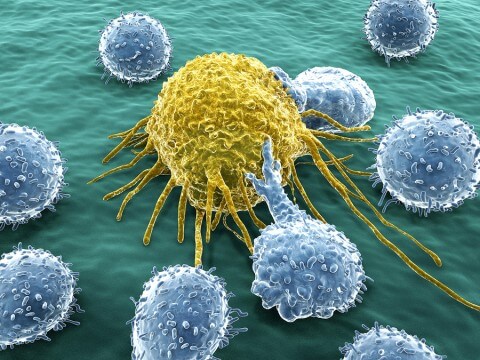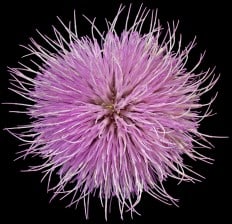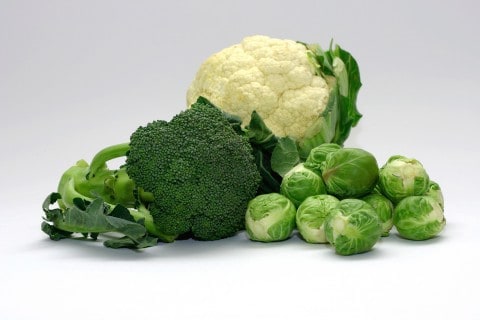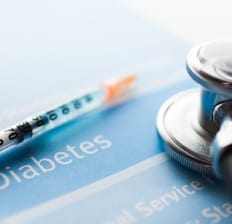Coined “The Mother of All Antioxidants” by Mark Hyman, MD, glutathione is one of the hottest topics in both natural health and medical circles today. (1) Pronounced “gloota-thigh-own,” nearly 117,000 peer-reviewed scientific articles have addressed this powerhouse molecule, and experts are now recognizing that an alarming rate of people are deficient because of:
- Pre-mature aging
- Infections
- Chronic stress
- Injuries
- Environmental toxins
- So-called “health foods”
- https://www.youtube.com/watch?v=6Ygom_0iW6w foods
- Artificial sweeteners
- Overuse of antibiotics
- And radiation therapy that is all too easily given to cancer patients today.
What Is Glutathione?
Glutathione (GSH) is a peptide consisting of three key amino acids that plays several vital roles in the body. Longevity researchers believe that it is so pivotal to our health that the level of GSH in our cells is becoming a predictor of how long we will live!
The key to understanding why GSH is so crucial for health is that every cell in our bodies produces it. In the words of Gustavo Bounous, MD, retired professor of surgery at McGill University in Montreal, “It’s the [body’s] most important antioxidant because it’s within the cell.” Although it is absolutely essential to maintaining a healthy immune system, it is not technically an “essential nutrient” because the body from the amino acids can create it L-cysteine, L-glutamic acid, and glycine
Glutathione and Cancer
One of the most promising areas of GSH research is the role that it plays in cancer. “By conferring resistance to a number of chemotherapeutic drugs,” an important 2004 study published in the Cell Biochemistry and Function highlights, “Elevated levels of glutathione in tumor cells are able to protect such cells in bone marrow, breast, colon, larynx and lung cancers.”
The reverse is also true. According to Italian researchers from the Department of Experimental Medicine, Section of General Pathology (Genoa), GSH deficiency causes cells to be more vulnerable to oxidative stress, which contributes to cancer development.
In fact, a growing number of researchers are now crediting the increase in neurological disease and cancer to glutathione deficiency.
As researchers have continued to investigate these phenomena, they have actually discovered that GSH is a more potent anti-cancer agent than previously anticipated. In the words of Jeremy Appleton, ND – chairman of the department of nutrition at the National College of Naturopathic Medicine in Portland, Oregon:
“If you look in a hospital situation at people who have cancer, AIDS, or other very serious disease, almost invariably they are depleted in glutathione. The reasons for this are not completely understood, but we do know that glutathione is extremely important for maintaining intracellular health.”
Because no one knows for sure the exact reasons why GSH is depleted in these patients and why it’s so effective in fighting against cancer, some question its health benefits. Some even claim that it can harm you!
Naturally made by our cells, there is no record of people “overdosing” on glutathione when supplementing from the natural sources that I discuss below. There are, however, clinical trials highlighting that asthmatics shouldn’t inhale glutathione because it may constrict their airways. Also, scientists are unsure as to how the body responds to synthetic varieties like the pills that you can get online or at your local health food stores. ( My recommendation is to stay with the 9 natural sources and skip the man-made stuff.
The bottom line, according to Appleton, is that,
“There’s no evidence that supplementing with glutathione, even intravenously, is in any way going to make any cancer worse. In fact, the evidence we have suggests the opposite. It suggests that glutathione and other antioxidants, far from interfering with the activity of chemotherapy, appear to reduce side effects without decreasing efficacy and may, in fact, improve the efficacy of the chemotherapy in fighting cancer.”
Top 9 Foods & Supplements to Boost Glutathione
Although the National Institute of Health (NIH) still claims that GSH deficiency is “very rare,” there is growing number of reputable sources that state quite the opposite. (16) Because of its role in preventing and managing disease, I recommend to be proactive and take a common sense approach to boost glutathione levels. Essentially, if you regularly consume these 9 foods and supplements to reach your overall health and wellness goals, you’ll also enjoy the naturally occurring glutathione benefits! It’s a win-win!

1. Milk Thistle
Used for centuries by traditional folk medicine all across the world, milk thistle has long been praised as a remedy for immune dysfunction. Specifically, silymarin, a unique flavonoid complex derived from the milk thistle plant, has been used for liver damage and biliary tract disease. According to scientists, the secret to milk thistle’s healing prowess is its ability to enhance GSH. Shown to boost glutathione levels in ethanol-induced rats, it was discovered that milk thistle could actually help protect the liver from toxicity in the presence of alcohol consumption; which is well-known to cause glutathione levels to plummet. (17)
2. Whey Protein
Whey protein replenishes glutathione by boosting cysteine which helps rebuild glutathione when it is depleted from an immune response. (18) According to a recent studies, whey protein is the ideal supplement to help naturally increase glutathione for both fighting cancer, strengthening the immune system, increasing metabolism, and reducing appetite. (19, 20) Rich in glutathione, it is extremely important to purchase the right type of whey protein. Avoid any whey protein that is processed, or protein isolate. I recommend grass-fed why or goat whey protein as a dietary supplement. You will want to use a whey protein powder that is all natural or organic (when possible) and is completely free of pesticides, hormones, genetically modified organisms, artificial sweeteners and is gluten free.
3. Sulfur Foods
Since the mid-1990s, it has been a well-established fact that GSH concentrations take a nosedive in the liver and lungs when sulphur amino acid intake is inadequate. (20) This is one of the many reasons I recommend sulfur-rich, cancer-fighting cruciferous vegetables as a critical part of any natural health regimen. These include:
- Arugula

- Bok Choy
- Broccoli
- Brussel Sprouts
- Cabbage
- Cauliflower
- Collard Greens
- Kale
- Mustard greens
- Radish
- Turnip
- Watercress
4. NAC
The unbelievably effective asthma remedy N-acetyl cysteine (NAC) helps decrease the severity and frequency of wheezing and respiratory attacks by boosting glutathione and thinning bronchial mucus. NAC is actually a precursor to GSH and it has recently been proven highly efficient at treating neurocognitive issues like addiction, compulsive behaviors, schizophrenia and bipolar disorder. (21) I recommend taking 200-500mg 1x daily.


5. α-Lipoic Acid
a-Lipoic Acid helps restore GSH levels with any immune system depletion. In fact, it is part of my Reverse Diabetes Naturally in 30 Days or Lessplan. Only 300-1200 mg of alpha lipoic acid daily helps improves insulin sensitivity and reduces symptoms of diabetic neuropathy. It has also been shown clinically to restore total blood GSH status and lymphocyte function in HIV/AIDS patients. (22)
6. Methylation Nutrients (Vitamins B6, B9, B12, and biotin)
In the words of Dr. Mark Hyman, methylation ingredients “are perhaps the most critical to keep the body producing glutathione.” (23) The best (natural) way to keep your methylation ingredients at optimal levels is to simply eat these Top Folate Foods:
- Garbanzo beans (chickpeas) – ½ cup: 557 mcg (over 100% DV)
- Liver - 3 oz: 221 mcg (55% DV)
- Pinto beans - ½ cup: 146 mcg (37% DV)
- Lentils - ½ cup: 179 mcg (45% DV)
- Spinach - 1 cup: 56 mcg (14% DV)
- Asparagus - ½ cup: 134 mcg (33% DV)
- Avocado - ½ cup: 61 mcg (15% DV
- Beets - ½ cup: 68 mcg (17% DV)
- Black eyed peas - ½ cup: 112 mcg (28% DV)
- Broccoli - 1 cup: 57 mcg (14% DV)
8. Vitamin C & E
Vitamin C helps raise glutathione in red blood cells and lymphocytes. (24) Vitamin E is an important antioxidant that works with GSH to prevent damage from reactive oxygen and protects glutathione-dependent enzymes.(25) So working together, Vitamin C and E help recycle glutathione and keep you disease-free! Eating these Top Vitamin C and Top Vitamin Efoods should be on all of our to-do lists. They together help keep glutathione at optimal levels and boost your immune systems and overall body function!
Vitamin C
- Oranges – 1 large: 82 mg (over 100% DV)
- Red peppers – ½ cup chopped, raw: 95 mg (over 100% DV)
- Kale – 1 cup: 80 mg (134% DV)
- Brussels sprouts – ½ cup cooked: 48 mg (80% DV)
- Broccoli – ½ cup cooked: 51 mg (107% DV)
- Strawberries – ½ cup: 42 mg (70% DV)
- Grapefruit – ½ cup: 43 mg (71% DV)
- Guava – 1 fruit: 125 mg (over 100% DV)
- Kiwi – 1 piece: 64 mg (33% DV)
- Green peppers – ½ c chopped, raw: 60 mg (100% DV)
Vitamin E
- Almonds – 1 oz: 7.3 mg (27% DV)
- Spinach – 1 bunch: 6.9 mg (26% DV)
- Sweet Potato – 1 Tbsp.: 4.2 mg (15% DV)
- Avocado – 1 whole: 2.7 mg (10% DV)
- Wheat germ – 1 ounce: 4.5 mg (17% DV)
- Sunflower seeds – 2 Tbsp.: 4.2 mg (15% DV
- Palm Oil – 1 Tbsp.: 2.2 mg (11% DV)
- Butternut squash -1 cup, cubed: 2 mg (7% DV
- Trout - 3 oz: 2 mg (7% DV)
- Olive oil – 1 Tbsp.: 2 mg (7% DV)

9. Beef Liver
Not only is beef liver in my list of top selenium foods, but it has been shown to boost selenium and gluthione production better than supplements. Studies have shown that because the nutrition has been concentrated in the liver, eating this organ from a local grass-fed, organic cow is a highly effective way to boost glutathione levels and that the levels of selenium in beef and in beef liver are far more bioavailable than supplements. I recommend only getting high-quality grass-fed beef liver either dried or raw and adding it to your diet to boost selenium and glutathione production.



No comments:
Post a Comment